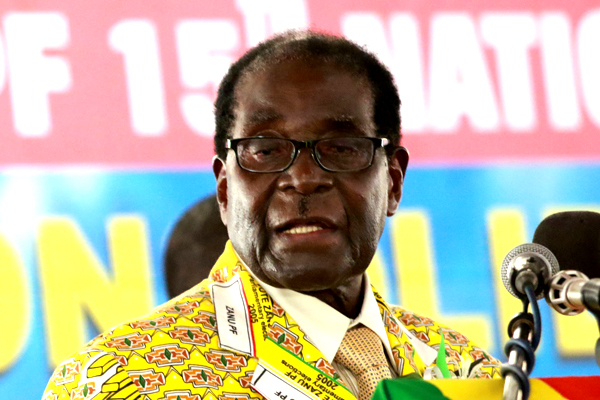
YESTERDAY, Zimbabwe celebrated Unity Day and never has this day lost its lustre as this year, it was so bland and dour, it was almost farcical.
NEWSDAY COMMENT
And to illustrate how this day has lost its importance, the Unity Cup between Dynamos and Highlanders – two teams meant to show Zimbabwe’s diversity and oneness – had to be cancelled over some logistical issues.
The importance of Unity Day can never be overstated, yet in Zimbabwe it passes without much fanfare and little recognition.
For Unity Day to gain significance again, the government has to simply return to basics and look at the founding values and what makes us proud to be Zimbabweans.
President Robert Mugabe and the late Vice-President Joshua Nkomo, who signed the Unity Accord in 1987, certainly envisaged a Zimbabwe far different from what is obtaining today.
Today’s Zimbabwe is a far cry from what Mugabe and Nkomo fought for and it is a betrayal to the thousands of people who lost their lives for it. While Mugabe and his government may pump their chests congratulating themselves for another year in power, the sad reality is Zimbabwe has never been this divided or broken since the historic day when the Unity Accord was signed.
As Zimbabwe reflects on Unity Day and how it is fondly associated with Nkomo, we recall his famous words at the burial of Zipra commander Lookout Masuku.
- Chamisa under fire over US$120K donation
- Mavhunga puts DeMbare into Chibuku quarterfinals
- Pension funds bet on Cabora Bassa oilfields
- Councils defy govt fire tender directive
Keep Reading
Nkomo, in 1986, bemoaned that the government had created fear in its citizens and had made some feel unsafe, while the government was increasingly paranoid.
Now, 29 years later his words sound even more poignant.
More than nine months later, Zimbabweans still have no clue what happened to Itai Dzamara, who was allegedly abducted by State agents. His crime was demanding Mugabe must step down, something perfectly legitimate in a country that recently adopted a democratic Constitution.
Zimbabweans continue to demand a number of freedoms, yet the government responds with contempt.
As Nkomo said: “Our country cannot progress on fear and false accusations, which are founded simply on the love of power.”
If the government has any hope of making Unity Day more meaningful than it currently is, then we implore the authorities to introspect and admit where they have gone wrong and ultimately return power to the people.
Zimbabwe can and will only progress when the authorities allow fundamental freedoms like speech and association and do not resort to brute force when confronted with dissent.
Every Zimbabwean recognises the importance of Unity Day, but the way the government has carried itself makes this day ponderous and unappreciated.
The same fate, sadly, will befall Independence Day, while – besides the President’s speech and the festivities – Heroes’ Day is largely irrelevant.
This is testament to a repressive government rather than an unpatriotic populace.
We plead with the authorities to ponder over the meaning of public holidays, otherwise the next generation will dismiss the very important days as irrelevant and with that the country’s history and legacy will be relegated to irrelevance.







